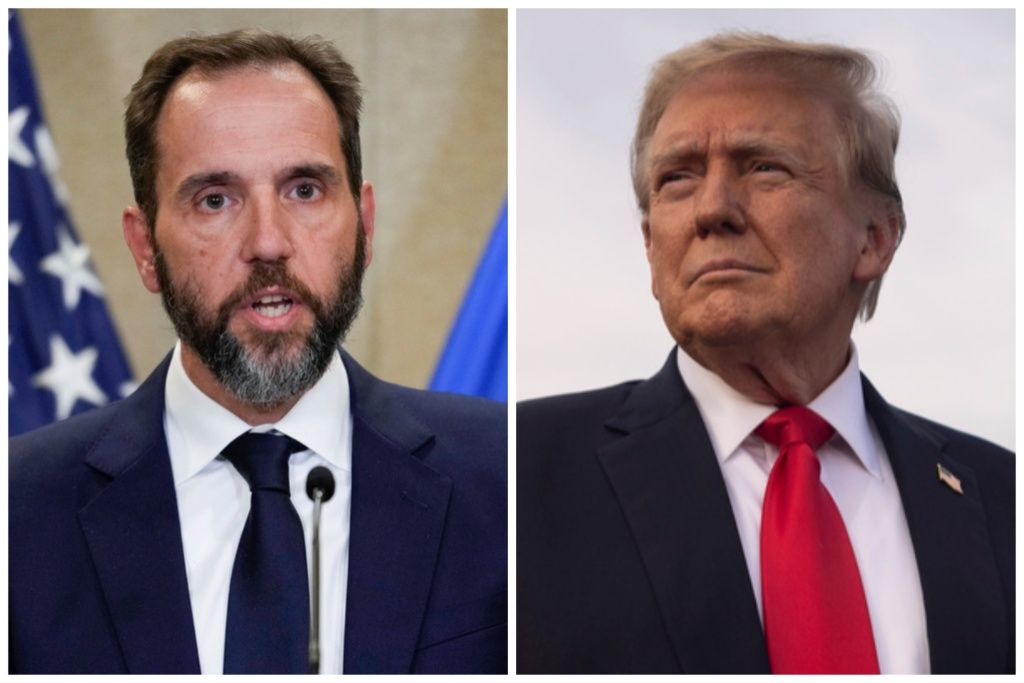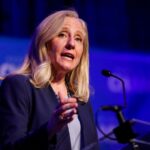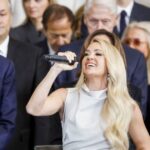

Former President Donald Trump’s election interference case is set to resume as early as Friday in Washington, D.C., after sitting dormant for months while the Supreme Court mulled presidential immunity.
The case’s anticipated revival could pave the way for dramatic pre-trial court proceedings in the coming months, serving as the only remaining case out of Trump’s four criminal prosecutions to see significant activity ahead of the presidential election.
The Supreme Court issued its decision on presidential immunity on July 1, and the high court’s order, known as a “mandate,” will be turned over to presiding Judge Tanya Chutkan on Friday.
Chutkan, an Obama appointee, will probably not hold any hearings immediately, but the judge will likely provide expectations about what will come next through a scheduling update on Friday or in the coming days, according to legal experts.
The Defend Democracy Project, a group comprising Trump legal critics, said in a statement that Chutkan’s next moves could lead to a “mini-trial,” which would involve a series of court hearings in which special counsel Jack Smith and Trump’s defense team closely examine and argue over actions in the former president’s indictment.
“Whatever Judge Chutkan does on Friday opens the door for a possible mini trial around Trump’s participation in the attack on our country on January 6, 2021,” the Defend Democrat Project said.
The Supreme Court ruled in its landmark decision on immunity that actions presidents perform as part of their official job duties are protected from criminal prosecution. The high court said certain actions in Smith’s indictment, such as Trump’s communications with his Department of Justice, are therefore off-limits from being used against Trump.
The Supreme Court did not spell out every action of a president that is immune from prosecution, however, and instead ordered the lower court to sort through Trump’s indictment to determine what items in it are no longer in alignment with the immunity decision.
The ruling was a massive blow to Smith, and it may force Smith in the coming months to excise key parts of his indictment and dramatically weaken his charges against Trump. It also almost certainly postponed any full trial until after the presidential election, especially given that any decisions reached during the pretrial phase would open an opportunity for Trump to pursue drawn-out appeals to the decisions.
But a silver lining for Smith and those hoping to see Trump stand trial is the prospect of forthcoming hearings that could shine a spotlight on Trump’s behavior in the aftermath of the 2020 election.
Trump at the time spread unfounded claims of widespread voter fraud and engaged in several unsuccessful legal battles as he attempted to overturn his election loss. In Smith’s view, Trump also allegedly made illegal attempts to change the election results and incited the Jan. 6 Capitol riot.
Jonathan Turley, a law professor at George Washington University, said Smith has been “very motivated” and Chutkan has seemed inclined to move the case on a “rocket docket” to hold a full trial before the election. It is unfeasible to maintain that pace now, Turley said.
“Pre-trial motions already presented a considerable challenge,” Turley told the Washington Examiner. “[Chutkan] will now have to review the charges and evidence under the standard set forth by the Supreme Court. The problem with pulling out the stops for a pre-election trial is that Judge Chutkan created little record on these issues.”
The potential mini-trial that some, such as the Defend Democracy Project, are anticipating would not produce a verdict, but it would allow for witnesses and a review of evidence, similar to what is presented during a full trial.
“Make no mistake: This isn’t the full trial Americans deserve,” the Defend Democracy Project said. “A mini trial, however, could still provide extremely helpful information for the public — and outline Trump’s alleged crimes to the American people.”
CLICK HERE TO READ MORE FROM THE WASHINGTON EXAMINER
Trump’s other three criminal cases will stay largely inactive ahead of the election, meaning Smith’s case in Washington, D.C., is currently Trump’s only major legal hurdle before November.
Trump is still set to face sentencing in New York in September for his hush money conviction, but the trial phase is over and Trump is raising several challenges to the verdict. In Florida, the classified documents case was dismissed and Smith is now working on filing an appeal, which in itself can be a monthslong process. Finally, in Fulton, County, Georgia, the next movement in that case is not scheduled until December, when the state’s appellate court hears arguments over whether District Attorney Fani Willis should be disqualified.





